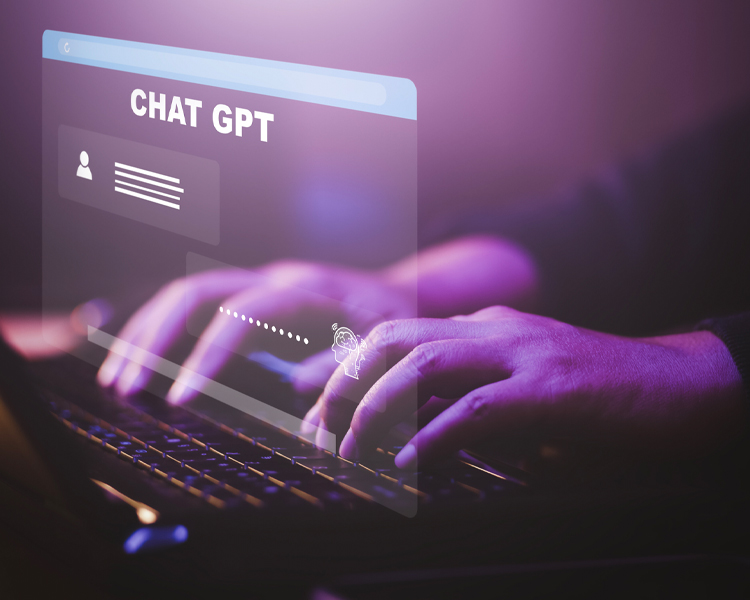Global Site
Breadcrumb navigation


NEC Joins The Race To Develop Japan’s Own Large Language Model (LLM)
From boosting business productivity, to helping the country manage natural disasters, and even improving healthcare standards
If you haven’t heard of large language models (LLMs), you must have heard of ChatGPT and Bard. LLMs are a type of artificial intelligence (AI) trained on massive text and code datasets. LLMs can generate text, translate languages, write different kinds of creative content, and answer questions in the form of a conversation.
There has been much excitement in the international LLM landscape over the developments in Silicon Valley, China, and even India. What hasn’t been talked about enough is Japan’s entry into the field.
NEC, one of the country’s most established technological trailblazers, is at the forefront of Japan’s LLM research and development, focusing on real-world applications, such as machine translation, medical diagnosis, and customer service.
But the international corporation isn’t a stranger to AI. Did you know that international space agencies use NEC’s AI to diagnose and troubleshoot their spacecraft? Or that NEC has already produced the world’s most accurate face recognition technology used worldwide in airports and hotels? Given the company’s rich experience in tech, and its state-of-the-art developments in AI, NEC’s foray into developing an LLM doesn’t come as much of a surprise.
Developing “open source” AI chatbots even before they were popular
Since 2018, NEC has been working with local government organisations in Japan to co-create AI chatbots to help answer FAQS and point residents to the right sources for their queries. NEC's project was based on the idea of co-creation, otherwise known as “open-sourced”, sharing FAQs across different government organisations to improve the efficiency of its chatbots. More than 50 agencies have participated in the project from the initial stages, and the chatbot is now undergoing even more refinement.
Instead of the previous versions of chatbots and menu-driven self-help screens, the next-generation AI-powered virtual assistants create a more “human” experience, which helps to enhance customer service levels, increasing citizen satisfaction.
One of the early adopters is the Policy Bureau of Yokohama City, which uses AI chatbots to answer FAQs and provide information about the city's policies and services. This has freed up staff time, allowing them to focus on more complex tasks.
Another Japanese government body is also using NEC’s chatbots to improve the quality and efficiency of its resident services, answering questions about the city's services and upcoming events, and even helping residents complete online forms. This has made it easier for residents to access the city's services and has improved their overall satisfaction with the city government.
NEC’s LLM model for Japanese businesses
NEC has now developed generative AI for business use specifically targeted at Japanese business owners, with high Japanese language proficiency. Launched on July 1 2023, the “NEC Generative AI Hub” was established as a specialised organisation for promoting the business transformation of customers, consisting of researchers, prompt engineers who provide precise instructions to AI, consultants, digital trust specialists and other professionals.
In its initial internal trial, the company built an environment and system that employees could use safely and securely in just two weeks. The lightweight model is linked to internal systems such as chat and web conferencing tools, and is being used by about 20,000 users, or about 10,000 times a day.
NEC is already seeing results from its internal use of generative AI. The system has reduced the man-hours required to create source code for internal system development by 80%, and the time needed to create documents by 50%. It has also reduced the time required to take meeting minutes from an average of 30 minutes to approximately 5 minutes.
These results are just the beginning. NEC’s Generative AI Service will begin offering proprietary language model licenses, dedicated hardware and software, consulting services, and more in Japan, with plans to gradually extend to new markets beyond FY2024.
Disaster management with NEC’s LLM
NEC has developed a technology for disaster damage assessment using LLM and image analysis. This technology enables users to immediately and accurately assess the extent and location of damage from the multitude of images collected when a disaster strikes. NEC plans to put this newly developed technology into practical use within FY2025.
The future of LLMs
LLMs can potentially revolutionise how we interact with computers and the world around us. NEC is at the forefront of Japan’s LLM research and development, and the company is committed to developing LLMs that can be used to improve the lives of people around the world.
Here are some of the areas NEC is also exploring with its LLM:
- In education: Personalise learning experiences for each student. NEC’s LLM could generate customised practice problems or provide feedback on student writing in Japanese.
- In healthcare: Improve the diagnosis and treatment of diseases. NEC is already using AI to help identify anomalies in patient data. By incorporating its LLM, hospitals and healthcare professionals can analyse medical data and identify potential health problems faster and more accurately. The LLM could also be used to develop personalised treatment plans for patients.
- In customer service: Provide more personalised and efficient customer service. Japanese governmental organisations and businesses already use NEC’s LLM to answer customer questions, resolve customer issues, and provide recommendations.
NEC is committed to developing LLMs that can be used to orchestrate a brighter world. From giving businesses a productivity boost, to helping the country manage natural disasters, and even improving the level of healthcare in the country, it is exciting to see what more the NEC team can achieve with its LLM and AI capabilities.
September 28, 2023


